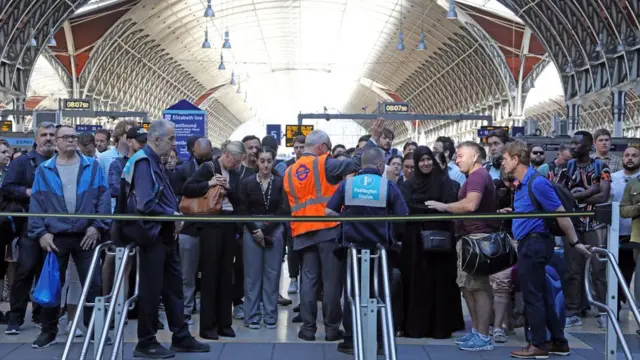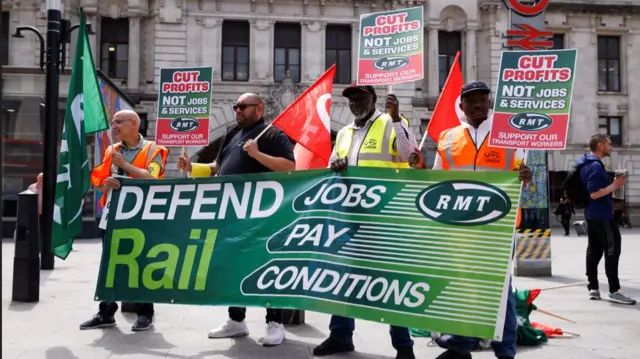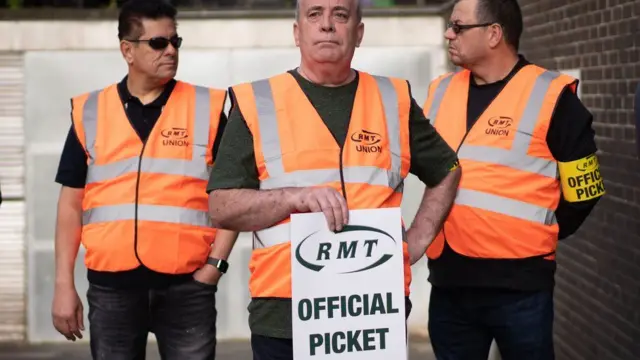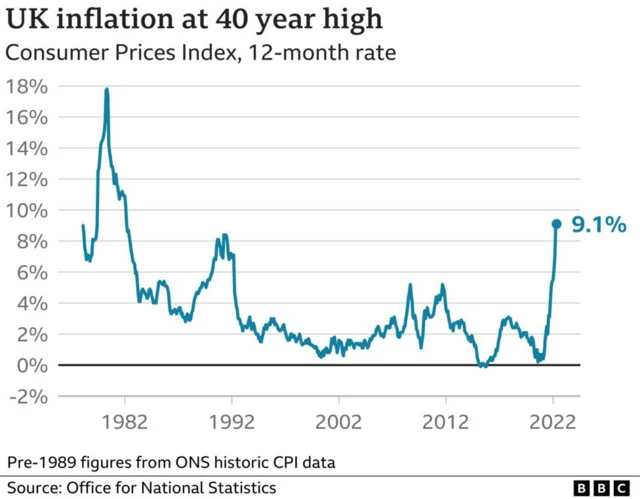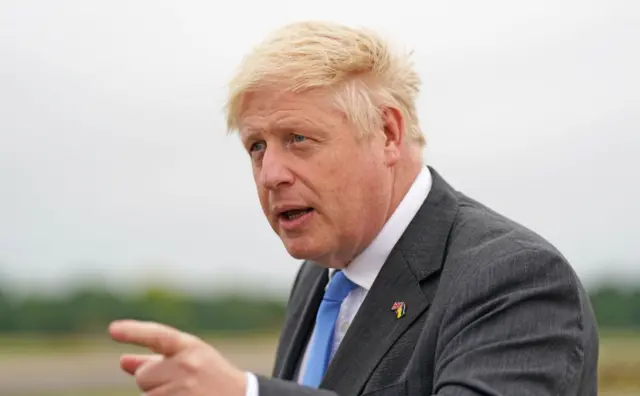Labour only interested in 'non-existent' jobs, says PMpublished at 12:08 BST 22 June 2022
Labour's Chris Elmore opens proceedings by asking whether the prime minister has ever considered a government appointment for his wife?
The prime minister says the opposition is only interested in talking about "non-existent jobs" covered in the media because they don't want to talk about "what's going on in the real world" of employment - citing the high employment rates under the Tories.
Downing Street and Carrie Johnson's spokeswoman have denied allegations in the Times that Boris Johnson attempted to place her in a government job while he was Foreign Secretary.

